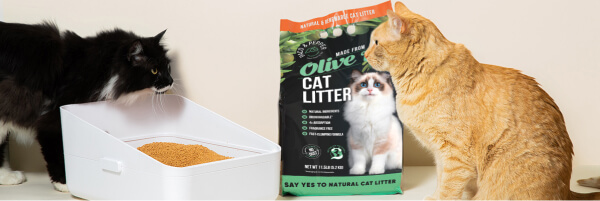How Long Can a Cat Go Without a Litter Box?

Understanding how long a cat can go without a litter box is important for her well-being and preventing health complications. In this article, we'll take a closer look at how long cats can comfortably hold their bladder and bowels, and the consequences of not having access to a litter box at night.
Cats are very clean animals that prefer a specially designated place for the toilet. Regular access to a clean litter box is essential for their health and well-being. How they cope without such access may vary depending on several factors.
How Long Can a Cat Go Without Using the Litter Box?
How long can cats go without using the litter box?The length of time a cat can go without a litter box varies, but as a general rule, cats should not be forced to go without a litter box for more than 12 hours. Young kittens and older cats may need to use the litter box more often, usually requiring access every 4 to 6 hours.
Can Cats Go Overnight Without Litter Box Access?
Although cats can stay overnight without a litter box, it is not recommended. Restricting access to the litter box for an extended period can lead to discomfort and potential health problems such as urinary tract infections or behavioral problems.
Factors Influencing a Cat's Need for a Litter Box
Several factors can affect how long a cat can go without a litter box:
Age and Health: Kittens and older cats usually require more frequent access.
Diet and hydration: Increasing your fluid intake may lead to the need to urinate more frequently.
Activity Level: More active cats may require more frequent trips to the litter box.
Risks of improper access to the litter box
Without regular access to a litter box, cats can develop a number
of health and behavioral problems:
Health risks: Holding urine for too long can cause urinary tract problems.
Behavioral problems: A cat may start defecating outside the litter box if it is not cleaned regularly or if it
does not have access when needed.
Preventive measures
To keep your cat healthy and happy, follow these guidelines:
- Provide constant access to a clean litter box.
- Maintain a regular cleaning schedule.
- Monitor your cat's litter box usage to detect any changes in behavior or health quickly.
How Long Can You Go Without Cleaning a Litter Box?
Keeping the litter box clean isn't just about odor control, it's vital to your cat's health and comfort. Regular cleaning prevents the buildup of harmful bacteria and ammonia, which can create a dangerous environment for both pets and people. Ideally, the litter box should be cleared of waste daily, thoroughly cleaned, and litter changed at least once a week.
If the litter box is not cleaned regularly, it can lead to several problems:
Odor formation: As waste accumulates, the litter box may begin to emit a strong, unpleasant odor. This can make the adjacent house or apartment uncomfortable to live in.
Bacterial growth. Old urine and feces can promote the growth of bacteria that may pose a health risk to your cat. Cats are finicky creatures and may avoid a dirty litter box, potentially leading to inappropriate destruction elsewhere.
Increased risk of disease. A dirty litter box can increase the risk of urinary tract infections and other health problems in cats. The bacteria can also be harmful to humans, especially to people with weakened immune systems.
Behavioral problems: If the litter box is dirty, cats may become stressed or uncomfortable using it, which can lead to changes in behavior, such as urinating or defecating outside the litter box.
Conclusion
Regular access to a clean and well-kept litter box is vital to your cat's health and well-being. Understanding and meeting your cat's needs can prevent health problems and provide a harmonious living environment.


